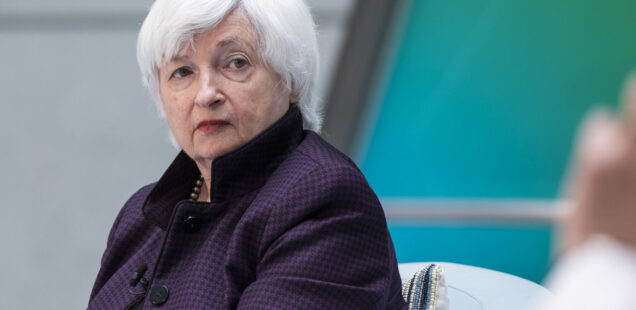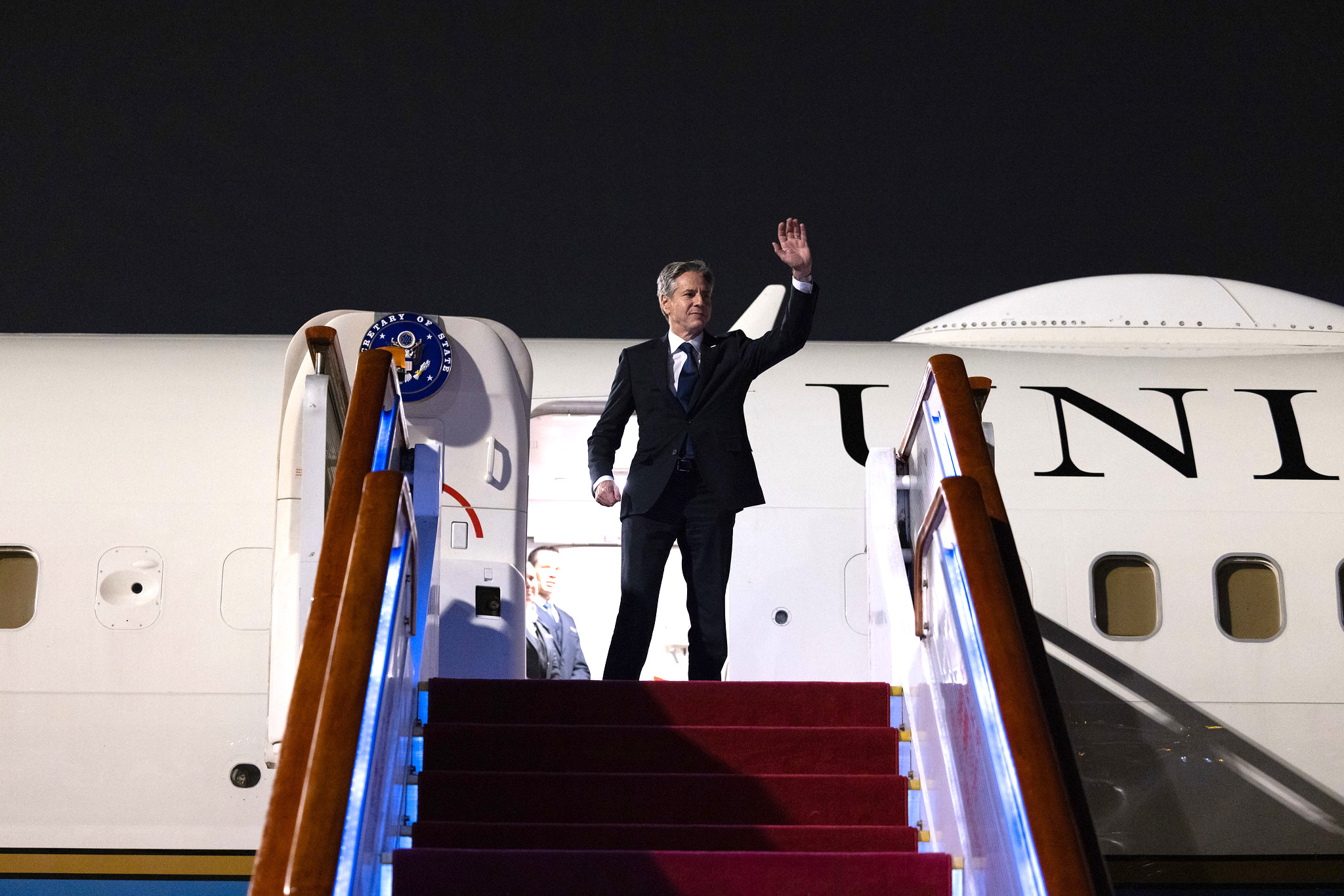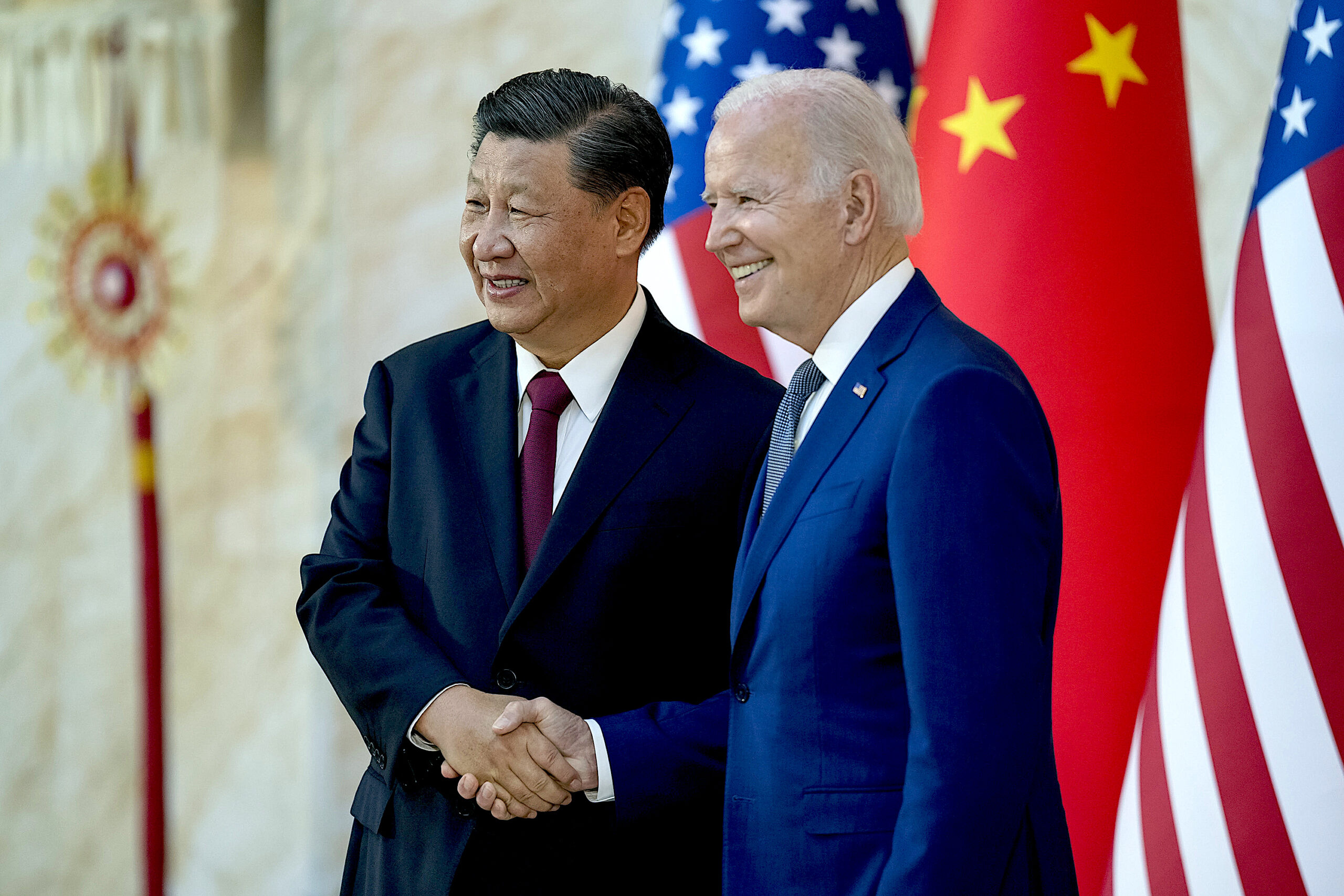
PATRICK LAWRENCE: A Yellen in the China Shop
Janet Yellen did an excellent job during her just-completed four-day visit to Beijing, we are now able to read in the corporate press. The Treasury secretary managed not to break any more China in the China shop.
This counts as a diplomatic success for Americans. Given where the Biden regime sets the bar for its trans–Pacific statecraft these days, you have to wonder whether they chant “Limbo lower now!” as they send off the next official on one of these pointless demarches.
Yellen’s trans–Pacific overture was another in a long line of such journeys the Biden regime’s top officials have made since they made a mess of Sino–American relations as soon as they took office.
There seem to be only two ways these adventures can come out: Either it ends in disaster or nothing gets done. Yellen chose the latter course, and let us be satisfied: Avoiding another diplomatic breach is the best we can hope for from these people.
Yellen made no mention of “the international rules-based order” during her four days of talks, which were actually two days, given that she filled a good deal of her time with American business executives, not Chinese officials.
This was an improvement over the performances of Antony Blinken, America’s secretary of state, who reads from some imperial catechism on such occasions and must always sermonize those who do not conform to the rules-based-order commandment.
Neither did Yellen nag the Chinese about the need for “guardrails” and “exit ramps” as the U.S. provokes the Chinese every which way it can — rhetorical tropes that make Tony sound more like a transportation bureaucrat than America’s top diplomat. Again, sensible.
A Parting Echo
At a press conference as she set off for home Sunday, Yellen delivered a line that seems to have got more attention than anything else she had to say during her stay in Beijing. “We believe that the world is big enough for both of our countries to thrive,” the secretary asserted.
I did a split-second double-take when I read this quotation in Sunday’s New York Times. Here is Xi Jinping lecturing — just the word — Tony Blinken during the 35 minutes the Chinese president gave the American secretary during the latter’s visit to Beijing several weeks ago: “Planet Earth is big enough to accommodate the respective development and common prosperity of China and the United States.”
[Related: Patrick Lawrence: US Still Nowhere with the Chinese]
American diplomacy with the Chinese is getting altogether weird. But again, repeating the Chinese leadership’s view as it if it has all along been America’s is better than another spill in Aisle 6. If you don’t have anything nice to say, as the old adage goes, say back what has been said to you, then get on your plane and look wise on the Sunday morning news programs.
Are you as bored as I am watching this conga line of Biden regime officials travel across the Pacific, saying the same thing, and come home every time with one of the two above-noted results — calamity or a lot of wasted jet fuel for the sake of being able to say, “We’re talking,” even if the two sides can do no more than talk about the importance of talking.
Nothing Comes of Nothing

First there was Blinken and Jake Sullivan, Biden’s national security adviser, who seem to me the Abbott and Costello of Biden’s variety show. Then came Wendy Sherman, Blinken’s No. 2, then John Kerry, the regime’s never-seen climate man. In the middle we had various video calls between Biden and Xi. What came out of these exchanges? You cannot name a single thing.
All of these people share three attributes. One, they know nothing about China.
Two, they do not care that they know nothing about China.
Three they do not care to know anything about China. They care only to project American power outward, most vigorously where it is most unwelcome.
President Biden, see the above paragraph, had a sideline summit with Xi at last November’s Group of 20 session in Bali, where they communicated about … the need to communicate.
Blinken followed a few months later by balking on the eve of a planned visit to Beijing on the excuse that a Chinese weather balloon drifted into American air space. (No one in Washington military or intel circles has ever put their names on the spy balloon story beyond the good old “assessment” stage.)
Last month we discovered why Blinken was so reticent: When he at last traveled to Beijing for two days of talks in mid–June, it was embarrassing. Blinken was the supplicant, not quite but nearly begging the Chinese to begin talking to the U.S. again and getting back teacher-to-student reprimands to the effect the Biden regime has to start saying what it means and meaning what it says.
Can’t have much of that, of course.
I loved our barely coherent president’s remarks at a fund-raiser in California wine country soon after Blinken got off his plane. Biden called the weather balloon an espionage craft “with two boxcars full of spy equipment in it;” asserted that Xi was embarrassed because he knew nothing of it and called the Chinese leader a dictator.
Good thing Blinken got nothing done in Beijing: If he had, his boss would’ve ruined it in the course of two sentences delivered to a roomful of nobodies who happen to be millionaire donors.
Better there was nothing to ruin.
Biden then had the nerve to say of Xi, “The very important point is he’s in a situation now where he wants to have a relationship again.” Please forgive me, but this guy, even in his senility, simply cannot stop bullshitting.
I tell you, between Blinken and Nod I cannot imagine what all those level-headed officials in Beijing, from Xi on down, think of this tasteless vaudeville act.
The Biden regime is at this point desperate to reconstruct the most important relationship America will have in this century, having turned it into a dog’s dinner, but it is one pratfall after another with these Dummköpfe.
And so, Janet Yellen must give it a go. Saving grace: At least it is not yet Kamala Harris’ turn. Yikes, the thought of it.
Diplomacy as Domestic Policy

Yellen sounded the now-standard theme, the need to talk, primarily about talking, but indeed anything so long as there is the appearance of American diplomatic competence. “Ms. Yellen announced that the two sides would pursue more frequent communications at the highest levels,” as The New York Times reported in Sunday’s editions. “The desire for more dialogue struck some analysts as a significant development.”
Did it, indeed? It was clear even before Yellen boarded her plane back to Washington that, as a former Treasury official quoted in the Times put it, “Yellen’s trip will hardly change the underlying dynamic and trajectory of the economic relationship.”
How could it?
Yellen gave absolutely no indication that the Biden regime intended to make any consequential adjustments to any of the antagonistic policies toward China it now has in place — not the Trump-era tariffs, not the all-over-the-place sanctions, not the controls on exports of high-technology components, not imminent plans to impose restrictions on U.S. investment in China. Nothing about any of it.
“So far, we haven’t seen any sign that Biden will rethink his economic policy toward China,” Wu Jinbo, dean of international studies at Fudan University in Shanghai, said in an interview with the Times. No, and by all indications they won’t.
Reuters reported from Washington Monday morning that the secretary is now urging Biden to drop a few of the least significant tariffs that remain in place. This is not a policy rethink by any stretch: Assuming for a sec that Biden buys into the idea, it would be a token move the point of which, given all else between Washington and Beijing, I cannot fathom and I doubt the Chinese will, either.
For months Yellen has insisted that depriving China access to technology it needs to develop its advanced industries is not meant to damage China’s economy or inhibit its growth. She tried on the same argument last week. I await the American official able to explain how this does not amount to a frontal attack on an economy with which the U.S. is losing its ability to compete.
As to the commonly made argument that technology and investment restrictions are necessary in the name of protecting America’s national security — Yellen repeated it, of course — it is nothing more than a cheap dodge by any serious assessment.
This is merely what it looks like, unprettily, when a declining imperium faces a rising power.
What would an American diplomatic encounter with China be without its list of criticisms and demands of the sort no civilized nation would think to make in its foreign relations? Yellen’s were interesting. We might learn something from them.
Among her complaints were Beijing’s support for public-sector enterprises — pure boilerplate — its recent (retaliatory) decision to block rare-earth exports to the U.S. and China’s production of upstream chemicals, with various legal uses, that find their way into the downstream production of fentanyl outside China’s borders.
There are a few things to say about these questions. One, there is another, Chinese side to all of them the U.S. declines to acknowledge.
Two, in the scheme of things they are not of first-rank geopolitical magnitude. It is always important to take a whack at the Chinese even if you claim to be trying to repair relations.
And three, there is the question of who Yellen was actually talking to when she raised such matters in Beijing. As these trans–Pacific encounters accumulate, I grow ever more convinced that these occasions are in large part spectacle.
American officials in Beijing are in many cases not talking to the Chinese: They are talking to the hawks who have taken over China policy in Washington.
It is diplomacy as domestic politics, in other words. Do you think the Chinese do not understand this, the essential unseriousness of their American guests? I am ever more impressed by the extent of China’s patience and courtesy.
Janet Yellen goes to Beijing, Janet Yellen returns to Washington, not a damn thing was meant to change and not a damn thing does.
Next on the list — we are well into round two now — is Kerry, who is charged with getting some kind of conversation on the climate question going again when he travels to Beijing later this month.
I do dread Kamala Harris’ moment, should her number ever come up. If it comes to this, the Biden regime will not be able to talk to China, even about more talking anymore.


Thank you Patrick Lancaster! WOW! This is an EXCELLENT Analysis! Thank You! Where are we going in U.S.-China Relations in your opinion? Is War inevitable? Can the Eagle stand to be bested by the Dragon and the Bear in this era? Will it take the “Strangelove Option?”